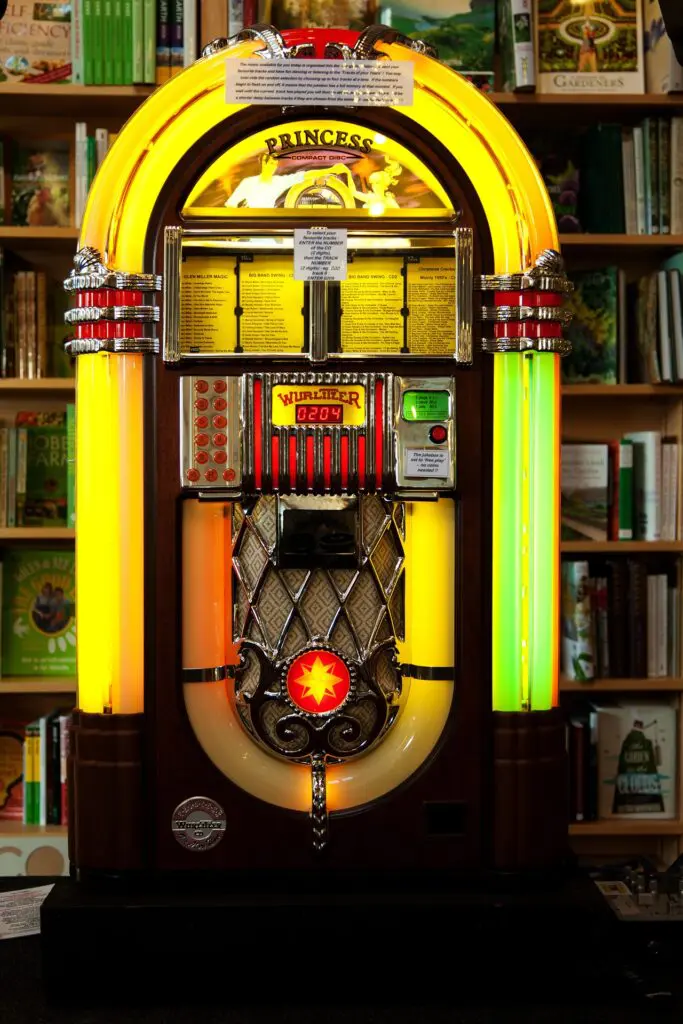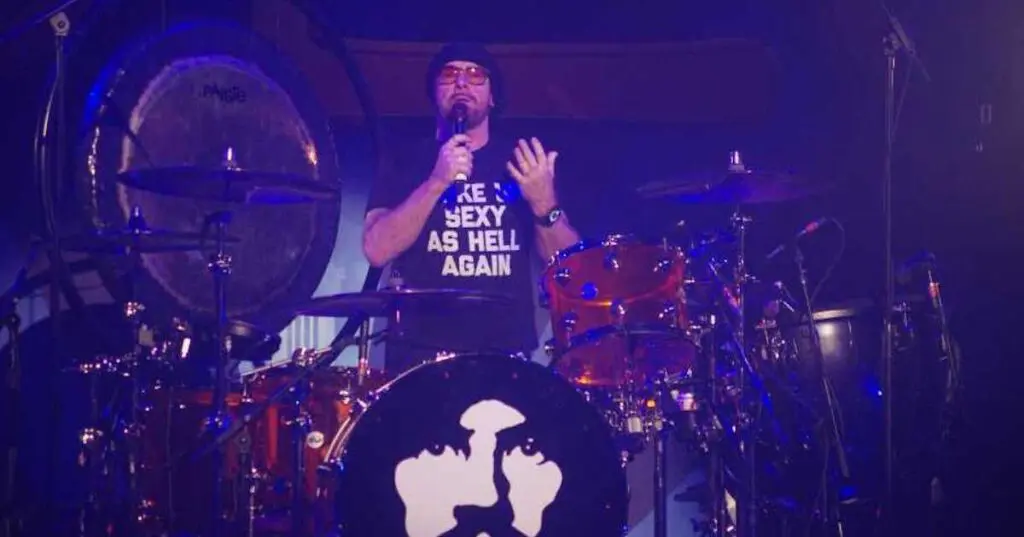Singin’ Guru – an Xperience Column
By Staff on December 8, 2024
Singin’ Guru – an Xperience Column – by Jeff and Crystal Moore.
Dear Singin’ Guru,
I’ve just finished an album and want to release it, but I’m confused by the legal mumbo jumbo. How do I protect my music and get paid royalties?
Sincerely,
So Happy My Album is Done
Congratulations, So Happy! You’ve poured your heart, soul, and probably your caffeine levels into writing songs. Now you’re thinking, “How do I protect this masterpiece from being stolen?” Good question. Here’s my answer: focus on the fundamentals of copyright and royalty collections, but don’t stress so much about theft that it stops you from sharing your music. This is an important topic that stumps many artists, so this month, we’re devoting the entire column to it.
How Do I Copyright My Music and Collect Royalties?
Step 1: Copyright – The “Mine!” Stamp on Your Song
As soon as you write your song, it’s automatically copyrighted to you—like an invisible stamp saying, “This song is MINE!” To solidify this claim, register it with the U.S. Copyright Office at copyright.gov. This makes it much easier to take legal action if someone tries to steal your music. Trust me, your lawyer will thank you.
Step 2: Join a PRO and Get Paid When Your Song is Played
Next, sign up with a Performing Rights Organization (PRO). These organizations collect royalties whenever your song is performed publicly—on the radio, at live shows, or streamed online. If others are performing your song, a PRO ensures you’re getting paid. Think of them as watchdogs for your wallet.
Main options in the U.S.:
- ASCAP: Costs $50 to join, one-year contract.
- BMI: Free to join, two-year contract.
- SESAC: Free to join (by invitation), three-year contract.
Which one is better? If you’re just starting out, BMI’s free membership is a nice perk. ASCAP is also solid with a one-year contract for a small fee. SESAC is by invitation only, so it’s generally for more established songwriters. All of them split royalties 50/50 between you (the songwriter) and your publisher (if you have one).
You can only pick one PRO as a songwriter, so choose carefully—it’s a pain to switch! If you want to switch later, you’ll need to formally end your current contract and sign up with a new one.
Step 3: Do You Need a Publisher?
Publishers manage your song’s copyright, handle distribution, and collect royalties—but they’ll take a 50% cut. As a new songwriter, you likely don’t need a publisher unless you’re making serious money from your songs. Publishers are usually interested in established artists, so focus on building an audience and a solid catalog before worrying about publishers. In the early days, your time is better spent writing more songs.
Step 4: Join a Mechanical Rights Organization for Reproductions
Mechanical rights organizations, like The Mechanical Licensing Collective (MLC) or Harry Fox Agency (HFA), collect royalties when your song is reproduced—on CDs, vinyl, digital downloads, and streaming. They ensure you’re getting paid when someone buys or streams your song.
To simplify things, you can join a publishing administration service like CD Baby or Songtrust. These companies handle both mechanical and performance royalties, helping you collect more of what’s yours from around the world. They do collect a percentage (around 15%), but they don’t have any rights to your song like a publisher does.
Step 5: Don’t Sweat It – Focus on Writing!
Yes, collecting royalties is essential, and these organizations are there to make sure you get paid fairly. But remember, when you’re starting out, the most important thing is getting your music out there. Obsessing over protection won’t help if no one hears your song. If you’re earning real money from your music, then go all-in on PROs, publishing administration, and mechanical rights organizations. Until then, let your creativity lead the way.
So get writing, keep creating, and remember—if people don’t hear it, they can’t steal it. Who knows? Your next song might be the one that has people knocking on your door.
What If Someone Tries to Steal My Music?
Alright, let’s get real. You’re worried about someone swiping your song—but here’s a truth that might surprise you. From what I’ve seen, no one is lining up to steal your music. In fact, one of the biggest challenges for musicians isn’t theft; it’s getting people to listen. Unless you’ve already got an audience buzzing about your songs, the chances of your music being stolen are slim.
Now, I’m not saying it’s impossible, and yes, there are horror stories of music being ripped off. But almost every high-profile copyright case involves established artists, not unknown ones. Legal battles usually happen over songs that are already hits, not those waiting to be discovered. If you’re just starting out, focus less on stopping theft and more on getting people excited to hear what you’ve made. Once you have an audience, then you can worry about people “borrowing” your tunes.
Here are six strategies to help you build an audience—and get people to actually listen to your music:
Strategy 1: Start Performing Locally
Go old-school and play for live audiences. Whether it’s an open mic or a local gig, getting out there helps you find fans and fine-tune your sound. Plus, nothing beats live feedback.
Strategy 2: Develop and Cultivate an Online Presence
Social media, streaming platforms, and music forums are your new best friends. Start a YouTube channel, put your music on Spotify, share behind-the-scenes stories, or talk about your process. The more people know you, the more they’ll want to hear what you’ve got.
Strategy 3: Listen to the Feedback, Even the Tough Stuff
When people give feedback—especially constructive criticism—take note. If listeners consistently say, “The mix makes it hard to hear,” or “Your guitar playing could use some work,” consider it. Don’t brush it off with, “They don’t get it.” Instead, think, “Maybe I need a pro to mix my tracks,” or “Time for some extra guitar lessons.”
Strategy 4: Be Patient—Hits Don’t Happen Overnight
Your first song might not be a chart-topper, and that’s okay. If you’re serious about songwriting, you’re in it for the long haul. Taylor Swift herself has said that out of every 100 songs she writes, maybe one is a hit. So keep writing; the magic usually happens along the way.
Strategy 5: Write Music You Love
If you’re not passionate about what you’re writing, no one else will be either. Write the songs you want to hear, and you’ll find others who connect with your vision. Plus, you’ll enjoy the process a lot more.
Strategy 6: Appreciate Your Fans—Even If There Are Only Two of Them
Fans are gold. If someone loves your music enough to listen and stick around, show them some love right back. No fan is “too small”—and if you treat them well, they’ll bring friends to your next show or share your next track.
The Bottom Line
Keep creating, put yourself out there, and build your audience. As your following grows, that’s when you’ll really need to think about protecting your music.
More from Jeff and Crystal Moore…





 RadioRadioX
RadioRadioX